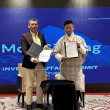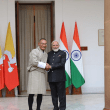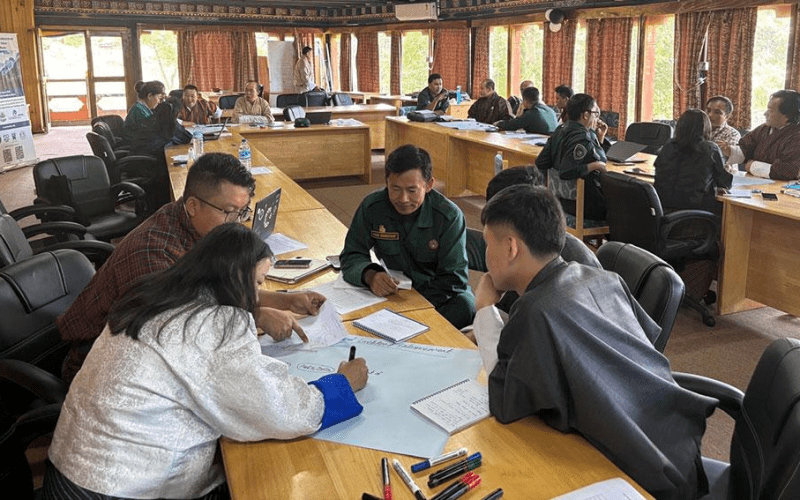A high-level consultation workshop in Lamaigoemba is bringing together experts and decision-makers to chart a new course for evidence-based environmental governance in Bhutan. The three-day programme, running until August 13, has drawn 23 participants from government agencies, research institutions, universities, non-governmental organisations, and international partners.
Titled “Evidence-Based Decision Making for Nature Conservation”, the event aims to strengthen Bhutan’s ability to integrate scientific research into policy decisions — a process organisers say is crucial for ensuring both local relevance and alignment with global conservation commitments.
Co-organiser Dr. Dechen Lham emphasised that while informal relationships between scientists and policymakers have played a role in shaping environmental policy, the lack of formal structures limits the nation’s capacity to respond effectively to complex challenges.
“Currently, science-policy engagement in Bhutan remains largely ad hoc,” Dr. Lham said. “Institutionalising these pathways will help make our governance systems more resilient, inclusive, and evidence-driven.”
Over the course of the workshop, participants are learning to apply Social Network Analysis (SNA) — a method for mapping and improving the flow of knowledge among scientists, policymakers, and other stakeholders. The goal is to identify gaps, strengthen connections, and create a more coordinated conservation network.
A press statement highlighted Bhutan’s constitutional and cultural dedication to environmental protection, which has earned the country global recognition as a biodiversity leader. But it also warned of mounting pressures from socioeconomic development, climate change, and obligations under international agreements such as the Kunming-Montreal Global Biodiversity Framework.
Following the workshop, participating agencies will review existing policies, analyse inter-agency coordination, and co-design targeted interventions to enhance collaboration. A policy brief with concrete recommendations for strengthening Bhutan’s science-policy interface in conservation will be shared widely with stakeholders.
The initiative is being led by the Department of Forest and Park Services under the Ministry of Energy and Natural Resources, in collaboration with the Swiss Federal Institute of Aquatic Science and Technology. By combining expert insight, stakeholder dialogue, and network mapping, organisers hope to lay the groundwork for a more structured, inclusive, and scientifically informed approach to safeguarding Bhutan’s natural heritage.








